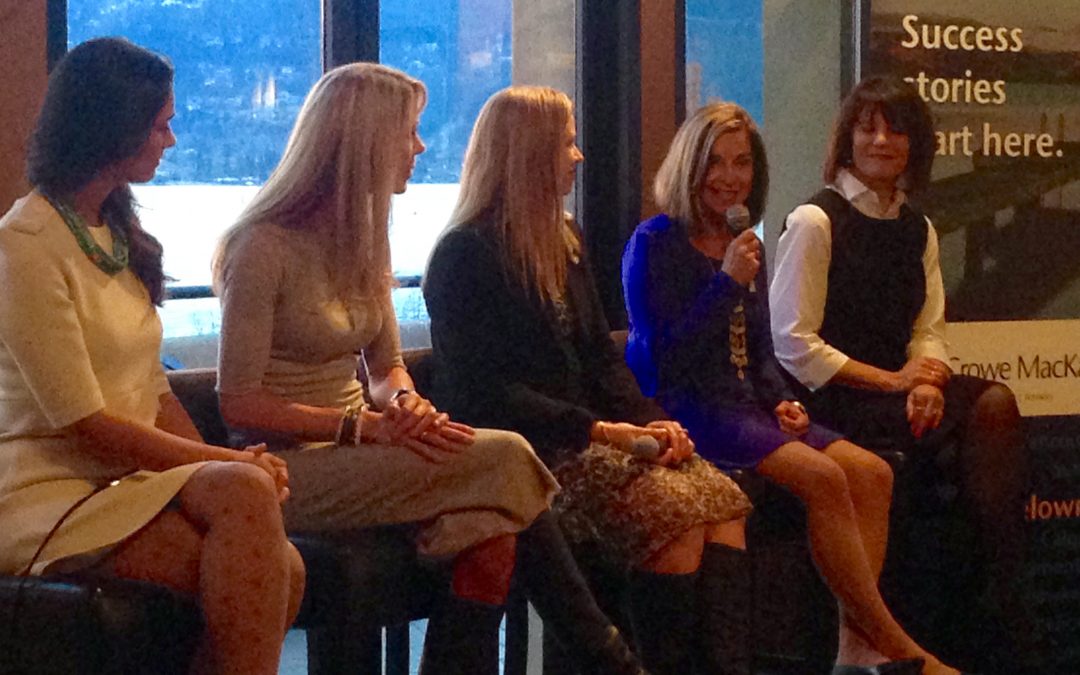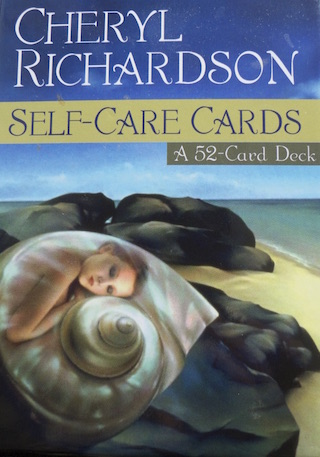
by pam | Aug 9, 2016 | Benefits of being in nature, Creative Living, Self-Care, Stress Management
According to the University of Minnesota’s Center for Spirituality and Healing “Research reveals that environments can increase or reduce our stress, which in turn impacts our bodies. What you are seeing, hearing, experiencing at any moment is changing not only your mood, but how your nervous, endocrine, and immune systems are working.”
Have you ever noticed that when you’re in nature your cares and worries melt away? You feel in the present moment. When I’m in nature I feel lighter and reconnect with childlike wonder at the beauty that surrounds me. Stress melts away and I feel light, carefree, and playful. When I’m in, on or by water I feel energized.
Nature has a number of therapeutic benefits. Did you know that:
- Children who grow up in big cities with little or no interaction with nature often suffer from “Nature-Deficit Disorder” which is characterized by anxiety, depression and attention-deficit problems. Research by Richard Louv and others show that regular connection with nature results in “everything from a positive effect on the attention span to stress reduction to creativity, cognitive development, and (a) sense of wonder and connection to the earth”.[1]
- The Japanese have done longitudinal research on the benefits of walking in forests. They have found that walking in forests strengthens your immune system, reduces your heart rate and reduces your blood pressure. Based on these findings, they have institutionalized what they call “forest bathing” or “forest therapy” and have created a number of centers across Japan where people can go and walk in forests.
- Spending regular time in nature can boost mental acuity, promote health and wellness, “build smarter and more sustainable businesses, communities, and economies; and ultimately strengthen human bonds.” [2]
So how can you spend more time in nature?
- Start walking or cycling to work if that is a possibility
- Go for walks at lunch in park-like environments
- Take short breaks when you’re feeling stressed at work and walk in nearby gardens or parks
- Plan family outings or time with friends hiking, kayaking, camping, walking …
- Have picnics with friends or family. You can be spontaneous and email or call some friends and say “we’re having a picnic on the beach tonight. It’s potluck. We’d love to have you join us. Bring what you would like to share.”
And notice how you feel before, during and after spending time in nature.
I’d love to hear from you strategies you use to spend more time in nature, and the effects you experience when you do so. I welcome your comments below. Feel free to share with others who you think may benefit.
[1] http://richardlouv.com/
[2] The Nature Principle – http://richardlouv.com/books/nature-principle/

by pam | Jul 26, 2016 | Creative Living, Stress Management, Women in Business, Work/Life Balance
Many of my coaching clients when they start to work with me say that they want to have more fun. They realize their lives are all about work, and they have little or no time for themselves, and to spend with others, to play and have fun. So What does fun look and feel like?
What does having fun look life for me?
It includes:
- Spending time in nature by myself or with people I care about
- Engaging in physical activity; e.g. swimming, cycling, hiking, kayaking, walking on the beach or by water
- Sharing time truly connecting with others; e.g. over coffee, meals or at an event/experience
- Laughing with others I feel close to; e.g. partner, family, friends
- Creating something new that will make a difference; e.g. writing a book, article, designing a program or project
- Exploring a new place (includes travel)
- Appreciating beauty; e.g. in nature, music, art, dance …
- Living life being open to possibility.
How do I feel when I’m having fun?
- Light
- Joyful
- Free
- in the flow
- Present (in the moment)
- Connected
- Energized
- Truly alive!
How does having fun relate to my top 5 core values? (For more details on values see http://creativelivingcommunity.com/do-you-live-in-alignment-with-your-core-values/). Very well indeed! My top 5 core values are:
- Connection
- Adventure
- Making a difference
- Love of learning
- Creativity
I invite you to ask yourself the following 3 questions and to share your responses and thoughts below:
- What does having fun look life for you?
- How do you feel when you’re having fun?
- How does having fun relate to your top 5 core values?
Here’s to having more fun in our lives!

by pam | Jul 12, 2016 | Conscious Living, Creative Living, Entrepreneurship, High Achieving Women, Self-Care, Stress Management
At a recent retreat, one of the commitments I made was to gift myself a mini-sabbatical. This meant taking Mondays and Fridays off through July and August to do what I wished, and to free myself from work-related activities. As an entrepreneur, I often don’t take large blocks of time off during the summer as it’s when I typically design new programs, write or make website changes. So a mini-sabbatical sounded like a good idea.
Last Monday, the first day of my mini-sabbatical, was easy as we had moved the day before and had not retired till close to 3 am, so it was easy to sleep in and to not work. The first Friday was more challenging. I was “pulled” to check my email and to start writing down the design for my new group coaching program. That said, I found a nearby yoga studio online and tried out my first yoga class there. Amazingly I connected with a woman after class who has a similar background to mine, and who may become a new friend.
The first question I’ve started to ask myself on awakening is What will I do to nurture myself today? To me nurturing involves: doing yoga, meditating, going for walks in nature, being by, in, or on water, connecting with family and friends in person and virtually, and cooking a special meal for my Sweetie and myself. What do you do to nurture yourself? My mantra for 2016 is I am open to possibility, and I repeat it once or twice daily. I also am increasingly listening to and trusting in the messages my body sends me. Here’s a process my clients and I have found useful in making decisions – http://creativelivingcommunity.com/how-do-you-make-decisions/.
So far on my mini-sabbatical I’ve noticed I feel more relaxed, more creative, more energized, lighter, and I’m finding that new like-minded people and opportunities are coming my way.
What would a mini-sabbatical look and feel like for you? Perhaps you’ve tried one before? I’d love to hear your thoughts below. Feel free to share this with a friend, colleague or family member.

by pam | Mar 24, 2016 | Beliefs & Values, High Achieving Women, Proven strategies, Stress Management, Women in Business
Burnout and extreme stress are on the rise globally. The Japanese even have a word for what can result from extreme stress “karoshi” or death from overwork[1]. International cross-cultural studies[2] show that those in the helping professions (e.g. social workers, nurses, physicians, development professionals), and high achievers, are at higher risk for burnout than the general population. The curious thing about high or over-achievers is that we tend to work harder when we get closer and closer to burnout. It’s almost like we believe we are invincible!
I recall when I was close to burnout a few years ago, how I kept pushing and pushing and NOT listening to my body. I had pushed through fatigue to finish that one last thing for many years, and was healthy (or so I thought) with no noticeable side effects. Until late 2012, when all that changed. After 13 months in Afghanistan followed by 12 months working with an NGO on projects in 7 countries in Asia and Africa, I finally realized I was exhausted and made a decision to STOP and take a much-needed break.
Causes
In general, people are expected to work longer and harder to get ahead. I recall a client sharing when she was articling to be a lawyer that she stayed at her desk for several hours after she had completed all of her work by 4:30 pm because the organizational culture expected articling students to always stay late. I’ve consulted with organizations where people apologized for not checking email while on vacation. One VP shared that this was the first vacation she had taken in 10 years!
Many organizations provide their managers and supervisors with smart phones and do not set clear boundaries related to emails and texts. People feel “chained” to technology 24/7. They feel like they have little or no time for themselves or to spend with family and friends. This causes stress in relationships, and in particular in women, leading to feelings of guilt about not being a good mother, partner or friend.
Organizations tend to reward individuals rather than teams, which encourages competition rather than collaboration among their managers and staff and further aggravates the stress. In a world where information and the logical left brain is valued more highly than intuition and our creative right brain, we have learned NOT to listen to our bodies and to focus on “doing” rather than “being”. Working in an organization or position/profession that is not aligned with your core values can also lead to burnout or adrenal fatigue.
Burnout and Adrenal Fatigue
Dr. Sherrie Bourg Carter in her book High Octane Women states that: “burnout occurs when chronic stress and frustration lead to:
- Physical and emotional exhaustion
- Feelings of cynicism and detachment
- A sense of ineffectiveness and lack of accomplishment.” (p. 16)
Dr. James Wilson in his book Adrenal Fatigue The 21st Century Stress Syndrome notes that :
“adrenal fatigue occurs when the amount of stress [physical, psychological, emotional, infectious, environmental or a combination of these] overextends the capacity of the body (mediated by the adrenal [glands]) to compensate and recover from that stress or the combined stresses. Once this capacity to cope and recover is exceeded, some form of adrenal fatigue occurs. “ (p. 11)
In general, traditional medicine does not recognize adrenal fatigue. Naturopaths and alternative medicine practitioners do. When you look at the research related to adrenal fatigue and burnout the symptoms overlap.
Symptoms
Do you feel exhausted? Have you lost your passion? Do you feel like your life is all about work and there’s no time for fun? If so, you may be suffering from burnout or adrenal fatigue
Other symptoms include:
- Insomnia (difficulty sleeping, mind often racing)
- Feeling tired on awakening; even after sleeping 10 plus hours
- Afternoon energy crash followed by a burst of energy later in the evening
- Anxiety
- Irritability
- Loss of enjoyment
- More prone to colds or flu
- Apathy
- Loss of appetite
- Feeling cold when others aren’t
- Reduced libido
- Difficulty focusing
- Reduced productivity
A free online assessment for Adrenal Fatigue is available at http://www.adrenalfatigue.co.nz/dr-wilsons-adrenal-fatigue-questionnaire/
What to do about it
- Unplug from technology at least 90 minutes before you go to bed
- Start listening to your body. When you feel tired take a short nap (e.g. 15 to 30 minutes if you can) or go for a short walk (15 to 30 minutes)
- Sleep at least 8 hours a night and go to sleep before 11 pm
- Schedule blocks of time in your calendar for you (e.g. work out at the gym, lunch with a friend, concert with your partner)
- Do some type of physical activity daily
- Eat a healthy diet with a variety of unprocessed foods including fruits, vegetables, legumes, whole grains (plant-based foods are best); poultry and fish
- Limit your alcohol and caffeine intake
- Begin yoga and if you enjoy it try to do it 3 times a week
- Meditate daily for 10 minutes or more
- Nurture yourself daily (e.g. have a bubble math, massage, listen to relaxing music, do something you love)
- Spend time in nature (aim for 3 times a week for 30 minutes each time)
- Make a list of key activities you need/want to accomplish each day. At the end of the day go through the list and check off those you’re completed at the same time celebrating yourself and feeling it in your body (for examples of celebration see http://creativelivingcommunity.com/the-power-of-celebration-2/ )
- Focus on one thing at a time
- Make a clear differentiation between work and home time. For example, before leaving work say to yourself, I am now leaving work behind, or pick a point on your drive or walk home where you make a conscious choice to release work and step into “your” time.
- If you are no longer excited about your work, do a values-clarification exercise, and get clear on your core values[3] and what “lights you up”. Perhaps hire a life coach to work with you to assist with this and support you to integrate new behaviors into your life
- If symptoms persist and if you are continually fatigued even though you sleep 8 plus hours a night, and have lost your zest for life, go to a recommended naturopath or physician who is open to complementary therapies.
What strategies have you found helpful to reduce stress in your life? What new strategy do you plan to integrate into your life starting tomorrow? I’d love to hear your comments below. Feel free to share this post with a friend, colleague or family member.
[1] http://rt.com/news/221467-japan-workers-law-vacation/
[2] http://www.theguardian.com/women-in-leadership/2016/jan/21/spot-the-signs-of-burnout-before-it-hits-you?CMP=ema-1694&CMP=
[3] http://creativelivingcommunity.com/do-you-live-in-alignment-with-your-core-values/

by pam | Mar 8, 2016 | Conscious Living, Creative Living, High Achieving Women, Self-Care, Stress Management, Women in Business
The occasion of International Women’s Day provides us with an opportunity to reflect on and celebrate all those amazing women throughout history who have improved the lot of women world-wide, from getting the vote to enabling women to own their own property. It is also a time for us as women to celebrate ourselves. So often we give to others without honoring or giving to ourselves.
I challenge you to make 2016 the year when you give to and celebrate yourself.
Here are some suggestions:
- At the end of each day go through the list of things you have accomplished (It’s preferable to have written them out as part of your daily plan), check each one off and as you do that feel the positive energy in your body from each accomplishment; truly celebrate YOURSELF.
- Make a list of things you do to nurture yourself. Add some others that you would like to begin integrating into your life. This could include starting yoga classes three times a week, taking regular walks in nature or taking a weekly bubble bath surrounded by candles.
- Make a list of the 5 people in your life who “fill you up” and energize you, and those people who “suck your energy”. Commit to spending as little time as possible with those who “drain your energy” or radiate negative energy. Spend as much time as possible with those people who “fill you up”.
- Make an effort to reach out for and ask for support regularly. For many of us, especially those who are used to always helping and being there for others, this can feel uncomfortable at first. Start with something small and over time “up the ante”. Notice how you feel before, during and after reaching out and asking for support. It’s like a muscle; the more you exercise it, the easier it becomes. You may also find that people are more than happy to support you, as showing your vulnerability enables them to connect with you more easily.
One last point; remember that we are all the same. Regardless of culture, race, ethnicity, or social class we all want to be loved, to belong, to feel special and to be respected. Smile at each woman you see today. Notice what happens.
Here’s to YOU; to the wise, loving and special woman that you are!
I invite you to share how you honor and celebrate yourself below. I welcome your shares on what happens when you make smiling a regular habit in your life (if you haven’t already 🙂 ).

by pam | Feb 16, 2016 | Conscious Living, Creative Living, High Achieving Women, Self-Care, Stress Management, Work/Life Balance
February is known as the month of love. During this time, many of us think of our primary relationships, of romance and of Valentine’s Day. What I know to be true is that we need to truly love ourselves before we can cultivate deep and satisfying relationships with others.
Many of us have been socialized from a young age to always give to others before ourselves. We may feel guilty if we take time for ourselves; such as having lunch with a friend, or to nurture ourselves; such as having a massage.
What happens if we constantly give to others without giving to ourselves? We may become resentful. For example, if we’re always giving to a friend, and when we ask for help, she doesn’t have time for us. We often become less tolerant and our patience wears thin so we react to our partners, children and co-workers in a reactive manner, rather than mindfully and sensitively. Over time we become exhausted. Do you relate? We all need and deserve some time for ourselves and to care for ourselves.
What activities do you regularly integrate into your life to nurture yourself?
For me doing yoga three to four times a week is extremely important. Meditating daily is also a way for me to ground and relax. Bubble baths with lavender bath salts is a self-care strategy of choice. For you, regular massages with a trusted practitioner may be your top nurturing behavior.
Make a list of the things you do already to nurture yourself. Add to the list other things you would like to begin doing. Cheryl Richardson’s best-selling book The Art of Extreme Self Care is a great resource that offers 12 strategies to transform your life one month at a time. Get into action by putting your self-care strategies in your calendar (e.g. yoga classes), and by scheduling appointments with your favorite massage therapist, or lunch with a dear friend.
Remember, YOU are precious and deserve to be nurtured.
What self-care strategies do you employ to nurture yourself? How do you feel during and after doing something for yourself? I welcome your comments and strategies below. Feel free to share this post with a friend.





